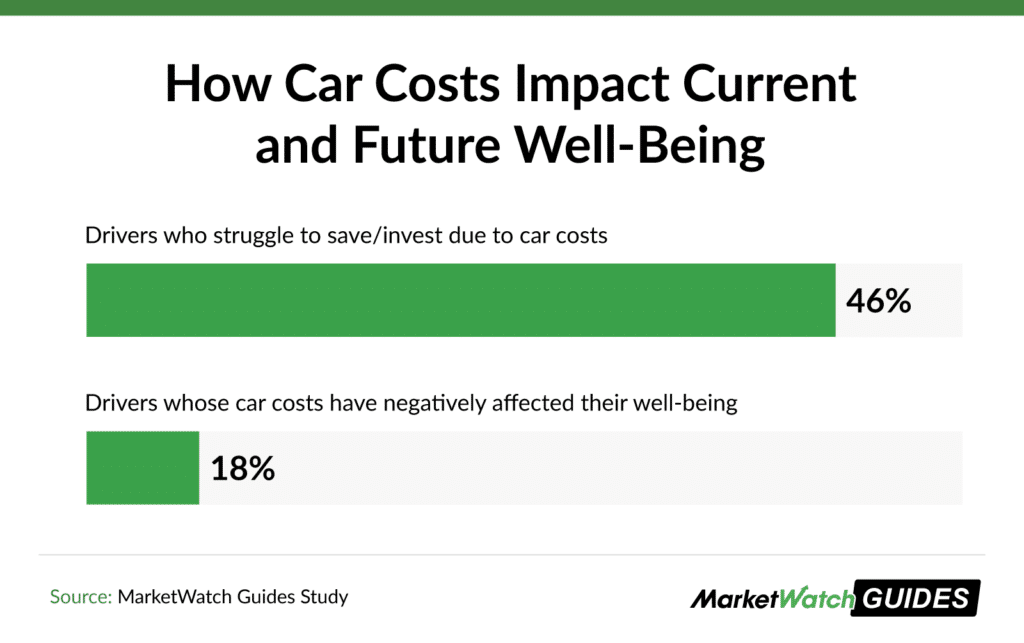With so many people cutting comforts out of life in favor of their vehicles, our survey revealed that car ownership today has emotional impacts as well. The next part of our study explores how owning a car affects drivers’ ability to invest or save for the future, their overall well-being and stress levels.

Almost half of the drivers we surveyed (46%) have found it more difficult to save or invest because of their car-related expenses. Beyond their financial health, car costs have also cast a shadow over 18% of our respondents’ well-being. Overall, 20% of drivers reported feeling “very” to “extremely” stressed. Those who said they couldn’t afford their cars were far more likely to feel stressed (36%) than those who said they could (13%).
Despite this, just 8% of drivers expressed regret about their car purchase, with the highest rates of regret among Audi (23%), Mercedes Benz (20%), BMW (16%), Ford (12%) and Tesla (10%) owners. Those who could not comfortably afford their cars were the most likely to experience buyer’s remorse (26%).
As for those drivers who could afford their car expenses, here are some strategies that have helped them stay on top of their finances:
“I paid off my loan early, and I take public transportation to work so I don’t have to drive as much.” – Male millennial driver
“I bought a pre-owned vehicle well under my means, am paying that off as quickly as I can and cutting unnecessary expenses in half.” – Female millennial driver
“I try to do repairs myself, and I use cars until they start to give me problems. I also refinanced my car when there was about $2,000 left on the loan, which helped me in those last few months of payments.” – Male Gen X driver
“I bought an older car with cash, so I don’t have any monthly payments. I do most of the repair work when necessary.” – Male baby boomer driver
“Do your own car maintenance; it’s easy and can save thousands. Use credit card rewards and gas station bonuses to save on gas. Use GasBuddy to find the cheapest gas. Make sure you maintain your car; oil is cheap, but engines are expensive. Always look for cheaper insurance; nothing is stopping you from making insurance companies compete for your business. Buy a car you can afford, meaning your car payment should be less than 10% of your income. Haggle when buying; it’s not illegal to do so.” – Male millennial driver
These insights from drivers who have successfully managed their car expenses could offer valuable strategies for those looking to make their car ownership more sustainable.
